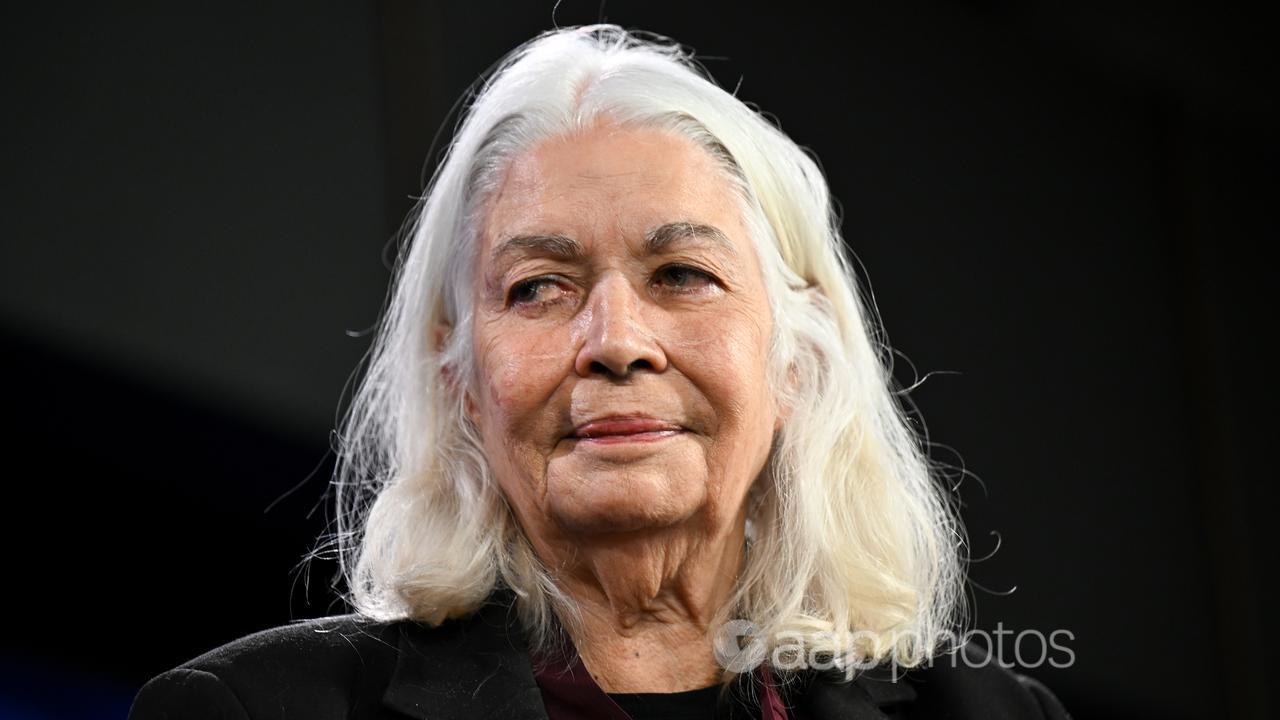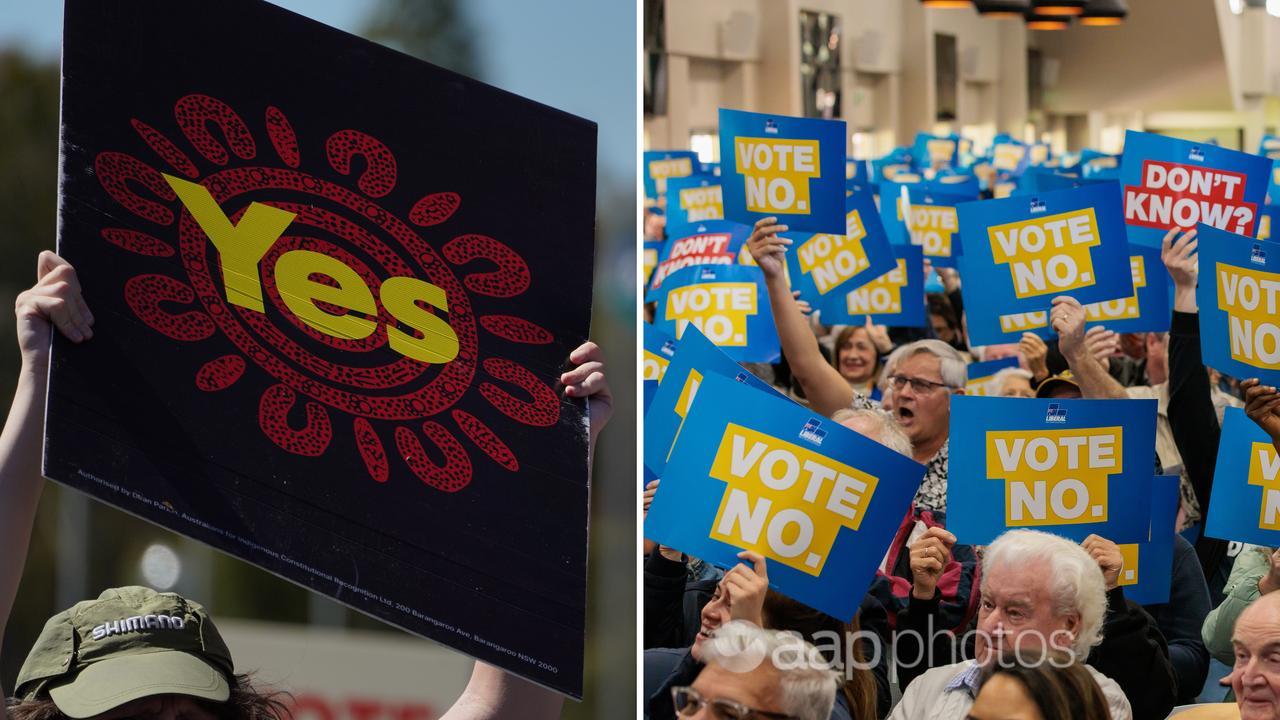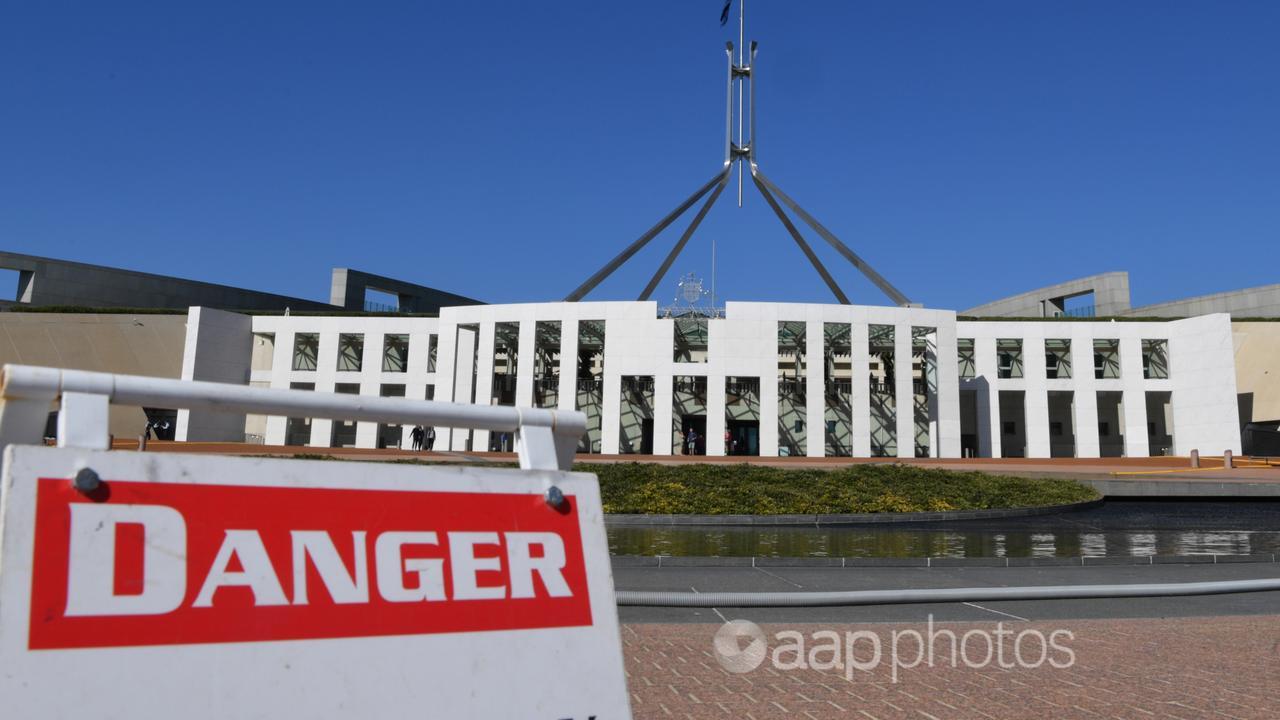Social media posts continue to claim an Indigenous voice would have ultimate power over parliament and government decisions, despite a wealth of reputable information outlining the proposal.
The claim is false. The constitutional amendment being put forward to the October 14 referendum makes clear the voice would be an advisory body.
Experts told AAP FactCheck it would only have the power to make representations on matters relating to Indigenous people. Parliament would retain primacy on all decisions.
Numerous social media posts claim otherwise, insisting the voice will dominate every decision made in federal parliament
Facebook posts such as this (archived here) state the voice “will have power over Parliament once they get in there and will be able to challenge any decision made by the government if it doesn’t suit their agenda”.

The post includes a link to a clip from a radio interview with Professor Marcia Langton, a member of the government’s referendum working group on the voice and co-author of the Indigenous Voice Co-design Process.
In response to a question during the February 2023 interview, she said it was a “possibility” the voice could mount a High Court challenge if parliament made a decision without listening to the body.
However, the question was in relation to the parliament taking the voice’s advice into account. It was not in relation to parliament following the voice’s recommendations.
Prof Langton was speaking four months before parliament approved the Constitution Alteration (Aboriginal and Torres Strait Islander Voice) 2023 bill, which confirmed the proposed wording to be added to the nation’s founding document.
Experts told AAP FactCheck that the proposed wording clearly sets out the powers of the voice. Notably, there would be no requirement to follow the voice’s recommendations.
But not only that. The experts also said parliament and the executive would not even be required to take account of the voice’s advice.
Professor Dan Meagher, chair in law at Deakin University, said the voice’s parameters were clearly set out by the wording it “may make representations to the Parliament and the Executive Government of the Commonwealth on matters relating to Aboriginal and Torres Strait Islander peoples”.
UNSW Scientia Professor George Williams, one of Australia’s leading constitutional law experts, agreed.
“This amounts to providing advice, and nothing more,” Prof Williams told AAP FactCheck.
“No provision is made for any greater power or role.”
Prof Meagher said there would also be no requirement for the parliament or the executive government to do anything at all with recommendations from the voice.
“They can be ignored if they so choose,” he said.

This point is also addressed in the bill’s Explanatory Memorandum, which states on Page 5: “The constitutional amendment would not oblige the Parliament or the Executive Government to consult the Voice prior to enacting, amending or repealing any law, making a decision, or taking any other action.”
Monash University constitutional law professor Luke Beck previously told AAP FactCheck that the amendment and its Explanatory Memorandum made clear the voice would “enable Indigenous Australians to speak” but would not “create an ear that is obliged to listen.”
As further evidence of parliament’s primacy over the voice, Prof Meagher pointed to Section 129 (iii) of the amendment’s proposed wording.
It states parliament will “have power to make laws with respect to matters relating to the Aboriginal and Torres Strait Islander Voice, including its composition, functions, powers and procedures”.
AAP FactCheck has previously debunked related claims here, here, here and here.
The Verdict
The claim that the Indigenous voice would have power over parliament is false.
Experts told AAP FactCheck the proposed constitutional amendment sets out the powers of the voice. It would only be able to offer representations on matters relating to Indigenous people.
The parliament and executive would not need to follow or even listen to those representations.
Parliament would also have the power to make laws in regards to the voice’s composition, functions, powers and procedures.
False – The claim is inaccurate.
AAP FactCheck is an accredited member of the International Fact-Checking Network. To keep up with our latest fact checks, follow us on Facebook, Twitter and Instagram.
All information, text and images included on the AAP Websites is for personal use only and may not be re-written, copied, re-sold or re-distributed, framed, linked, shared onto social media or otherwise used whether for compensation of any kind or not, unless you have the prior written permission of AAP. For more information, please refer to our standard terms and conditions.


















